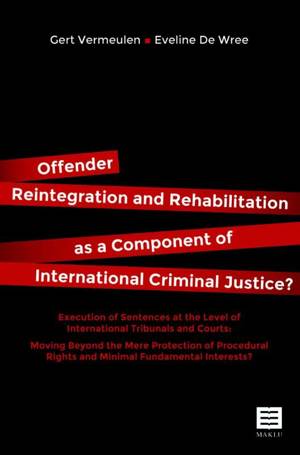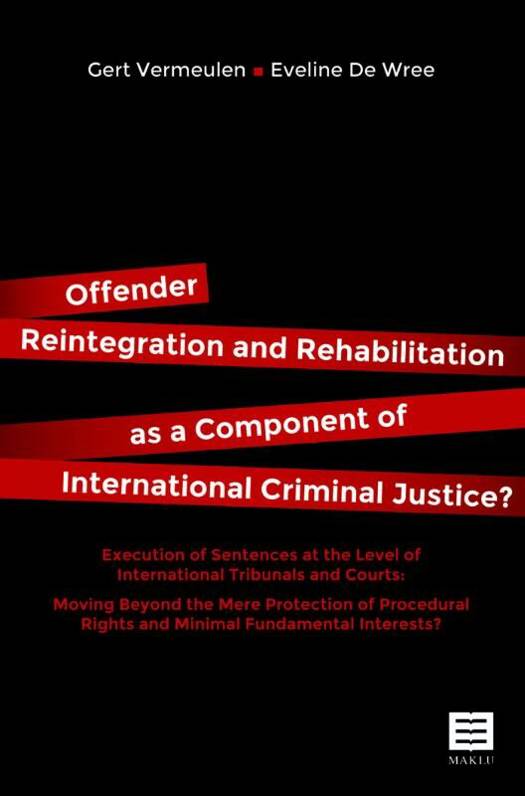
- Retrait gratuit dans votre magasin Club
- 7.000.000 titres dans notre catalogue
- Payer en toute sécurité
- Toujours un magasin près de chez vous
- Retrait gratuit dans votre magasin Club
- 7.000.0000 titres dans notre catalogue
- Payer en toute sécurité
- Toujours un magasin près de chez vous
Offender Reintegration and Rehabilitation as a Component of International Criminal Justice?
Execution of Sentences at the Level of International Tribunals and Courts: Moving Beyond the Mere Protection of Procedural Rights and Minimal Fundamental Interests?
Gert Vermeulen, Eveline de Wree
Livre broché | Anglais
54,45 €
+ 108 points
Description
Historically, little attention was paid to the execution of sentences passed at the level of international courts and tribunals. Capital punishment was still used and custodial sanctions were imposed in the relevant states. It was not until the 1990s, with the creation of the ad hoc tribunals, that the execution of sentences also became a task for international tribunals, in cooperation with, and by means of transferring the sentenced person to, a state which had committed itself to executing the sentence. The basic principles of these vertical transfer procedures are characterized by a system logic, with a limited role for the sentenced person, as is also the case at the level of the ICC. Nonetheless, minimal human rights and international standards for the execution of sentences (as agreed upon at the level of the UN) are respected. This book investigates if, and to what extent, the interests of the sentenced person could be better pursued and enhanced during vertical procedures for the execution of sentences. It therefore takes a clear-cut rehabilitation and social integration perspective. Given the dominant representation of EU Member States among States willing to execute sentences passed by international tribunals and courts, the book wonders whether practice should not evolve towards reflecting the obligatory compliance of these States with, besides the UN standards, additional (sometimes wider, more precise and higher) Council of Europe and EU standards. This would be reflected in the policies of the tribunals and courts (especially the ICC) relating to the conclusion of sentence execution agreements with states, as well as in the actual case-based decisions in which particular sentence execution states are chosen. The book further pleads for the conclusion of a bilateral EU-ICC agreement on the execution of sentences, since this would constitute an important contribution to international justice, and one that is likely to make the reintegration and rehabilitation of offenders (a greater) part of it.
Spécifications
Parties prenantes
- Auteur(s) :
- Editeur:
Contenu
- Nombre de pages :
- 134
- Langue:
- Anglais
Caractéristiques
- EAN:
- 9789046606513
- Date de parution :
- 10-02-14
- Format:
- Livre broché
- Format numérique:
- Trade paperback (VS)
- Dimensions :
- 160 mm x 239 mm
- Poids :
- 226 g

Les avis
Nous publions uniquement les avis qui respectent les conditions requises. Consultez nos conditions pour les avis.






